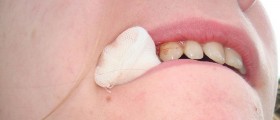
Introduction
Tooth extraction is performed due to the different causes. As any other procedure even the extraction of a tooth can result in certain complications. Luckily, these complications do not occur so often since the methods and techniques of tooth extraction have drastically advanced.
All the complications related to tooth extraction can be divided into two groups, complications that occur during the very procedure and complications that develop after the extraction of a tooth.
Tooth Extraction Complications During the Procedure
These complications are mostly related to the anatomy of the tooth, its size and the strength of the surrounding tissues. Namely the tooth may have long roots which only make the procedure more complex. Furthermore, the tooth may not be in physiologic position or the gum may be very strong which additionally impedes in the process. If the tooth is affected by cavity or the crown is weak it is more susceptible to be broken during the procedure.
Apart from fracture, some of the parts of the tooth may remain in the gum. Even the teeth that are next to the tooth that is extracted can be damaged. In severe cases the nearby sinuses are affected as well. If a tooth is broken the dentist will remove all the pieces except for those which are in close relation to the nerves. This way the damage to the nerve can be effectively avoided. Sometimes the damage of the nerve cannot be avoided. The nerve damage usually happens in case of wisdom tooth extraction. Nerve damage is either temporary or permanent. The fracture of the jaw happens in rather rare cases. In case that patient is removed one of the upper teeth there is a chance that the dentist perforates the floor of the maxillary sinus. The hole that connects sinus with the oral cavity can heal on its own or needs additional surgery.
Complications that Develop after the Tooth Extraction
The majority of complications actually develop during the very procedure of the extraction. This means that postoperative complications are not so common.
Edema and hemorrhage occur most of the time. Swelling is normal body response after each and every procedure of this kind. It lasts around one day. Prolonged bleeding after tooth extraction may affect people suffering from coagulopathies.
Dry socket is additional postoperative complication which features with the pain due to the exposure of the place of extraction to air, fluids and food after the blood clot that has been present in the extraction place has been dislodged. This condition is not permanent and lasts approximately six days.

















Your thoughts on this
Loading...